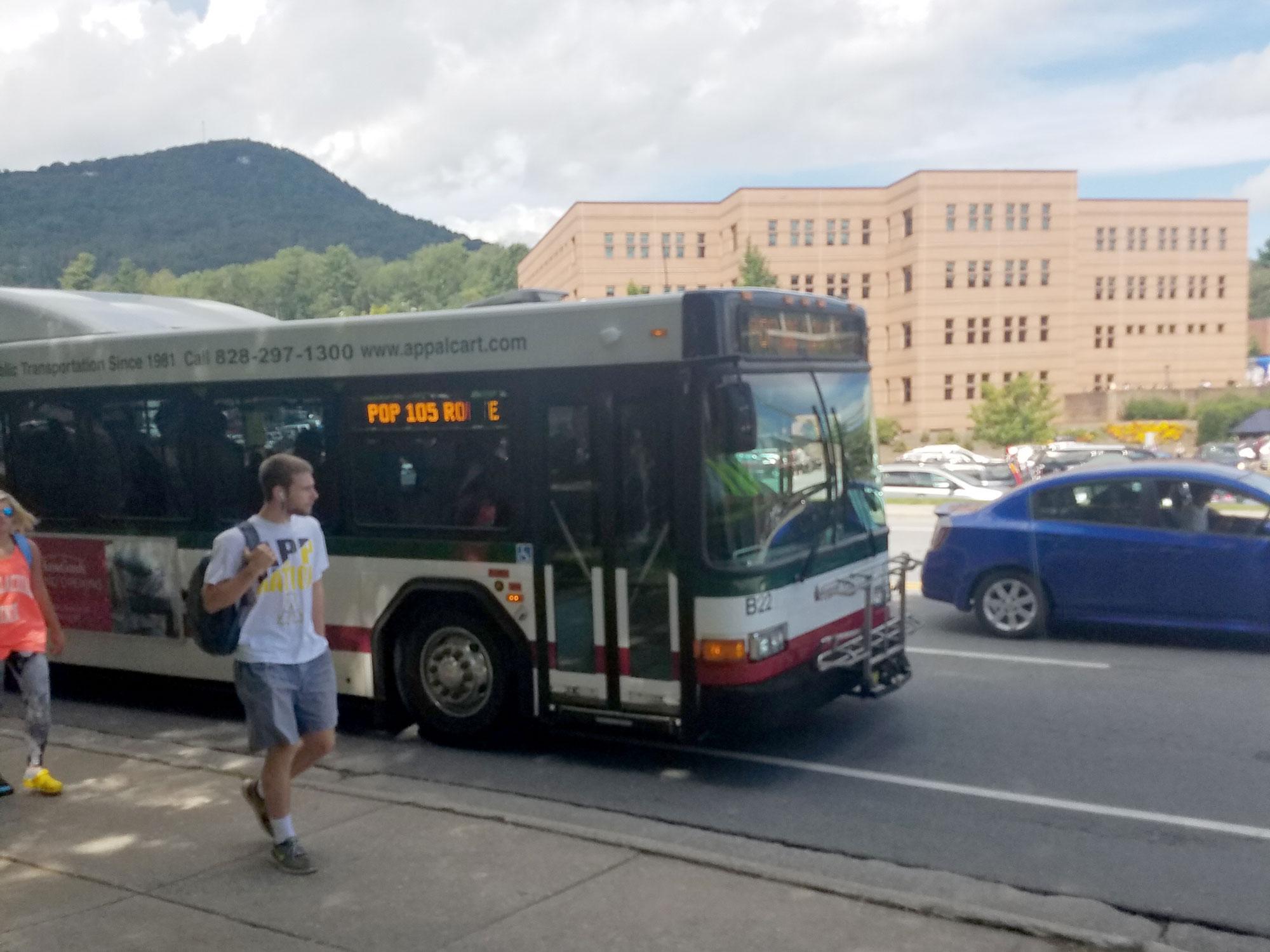First established in 1981, with campus bus services beginning in 1982, AppalCart provides fare-free transportation to Appalachian students as well as residents of Watauga county.
According to The Watauga Democrat, in 2014 the AppalCart provided transportation to an estimated average of 4,750 people per day with a significant portion of those being students.
Normally one might be able to receive more detailed and current statistics on AppalCart’s website under the “Information and Stats” tab, however, that link has been blank since at least the beginning of the semester.
And this is just where AppalCart’s faults begin.
Plagued by scheduling issues, overfilled buses and online errors, many students I have spoken with would like to see improvements made.
Personally I have only lived in Boone since the beginning of this semester, yet I can say I have already had to wait 45 minutes for the bus which services the area I live.
And I understand this may not be entirely AppalCart’s fault, as it is clearly evident traffic can be a major issue in Boone during certain times of the day.
However, I and many of the students I spoke with are left wondering whether there are steps that could be taken to improve this?
Sarah Cawthorn, a junior exercise science major, said she and many students she knows have missed tests, exams and doctor appointments due to buses leaving early.
While other students, such as Allie Proctor, a sophomore elementary education major, said they have seen buses break down or arrive late on many occasions.
Alyssa Baker, a senior psychology major, said she too has known buses to break down on multiple occasions and questioned whether more frequent inspections would help prevent instances of buses breaking down during peak hours.
Some students, like Katie Wynn, a sophomore public relations major, said they wished particular lines ran longer, because as is the case with Katie, many students may need to be on campus later than their bus line runs, whether it be for evening classes, club meetings or tutor sessions.
According to Appalachian State University’s own fact section of their website, roughly 66 percent of ASU students live off-campus and many of them, such as myself, may not own a vehicle and thus depend on public transportation to make it to and from campus in a reasonable amount of time.
Additionally, Coree Loffink, a sophomore sustainable development major, said that she wished the buses ran longer because she feels safer on the bus than any other means of transport.
Regarding the issues of bus demand, several students I spoke with said they have personally seen buses pass by groups of 30-50 people due to the buses being full.
Nick Menendez, a senior criminal justice major, is one student who has seen this and said although he has not personally counted every person waiting at a stop, three out of the five times he has taken the bus in the past week, the bus has been so full that it had to pass several subsequent stops in which people were waiting, due to being at maximum capacity.
“You get passed by a lot if you are near the end of a route,” Victoria Larson, a senior geology major, said.
Another area of issue many students expressed concern with is AppalCart’s online presence.
Their website has outdated or completely blank links, such as the previously mentioned “information and stats” tab. Their Facebook page has not been updated in over a year and their Twitter seems to mostly be filled with acknowledgements of issues like the ones covered in this article and with the company’s outside-sourced NextBus App.
While acknowledging at least some of these issues is a start, it should be just that, a start, not all that is ever done.
Despite these issues, nearly every student I spoke with still had a positive outlook of AppalCart, or at least what it is trying to achieve.
Some students complimented the drivers, defining them as “the nicest” and even one student, Katherine Serrell, a junior accounting major, went as far as to say she “love(s) her bus drivers.”
AppalCart is a great system and there would be many students negatively impacted if it did not exist.
However, just because we are appreciative of something doesn’t mean we are not allowed to be critical of it as well and in fact we should be, that is how we ensure that thing achieves the highest level of quality possible.
To be fair to AppalCart, they do have a section on their website which states “AppalCart’s drivers and management strive to provide reliable, comfortable and courteous service to our passengers” and “all passenger complaints are fully recorded and investigated. Every effort is made to alleviate the source of any complaint.”
So, the question we are left wondering is: Can AppalCart do better and do we, the students, care enough to make that happen?
If so, I encourage everyone who has been or could be affected by the aforementioned issues to visit their website: appalcart.com and leave a message via the “Contact” tab.
Cristian McLaughlin is a junior public relations major from Roxboro, NC.
Follow him on Twitter at @_CAMcLaughlin


